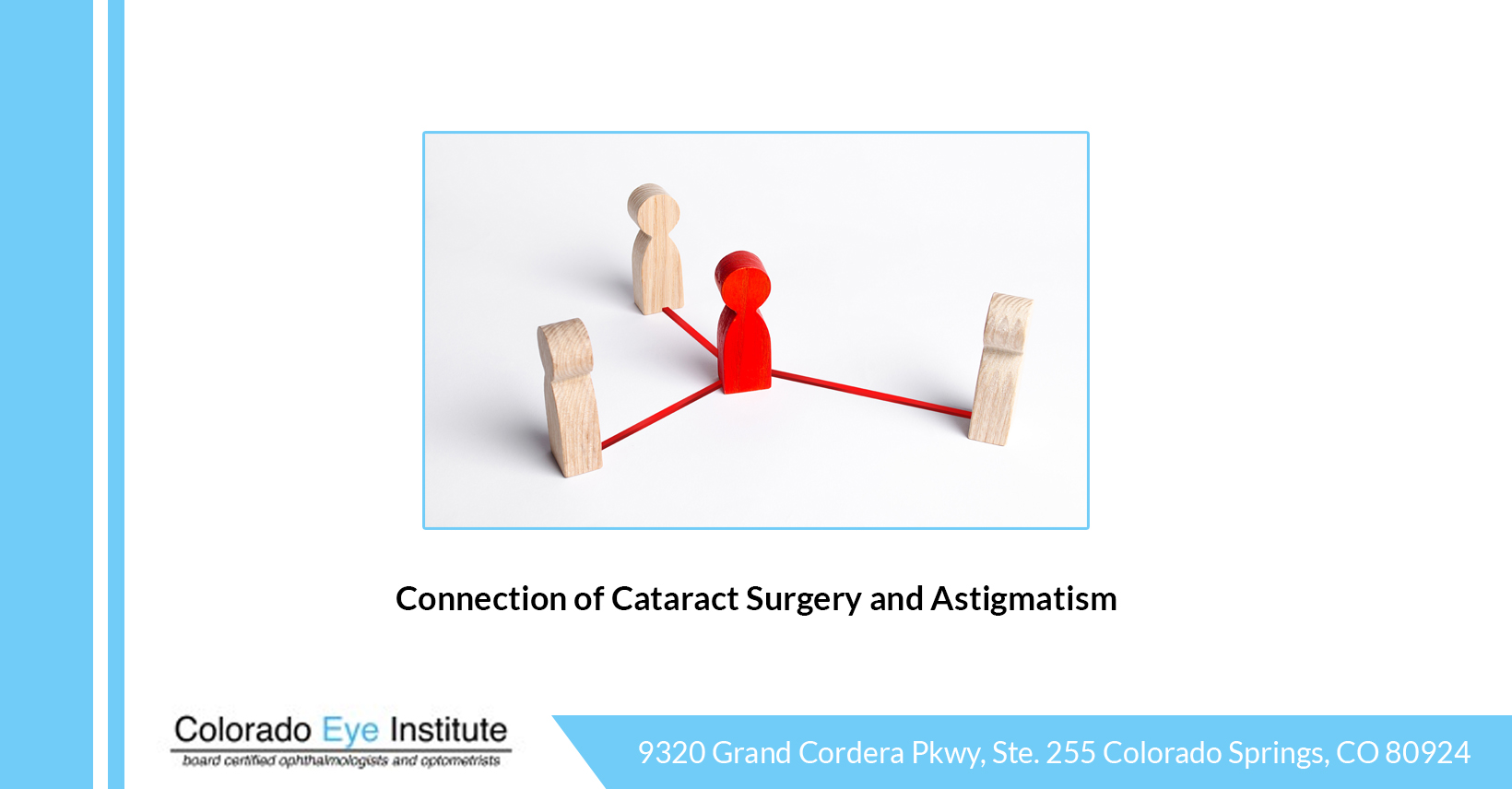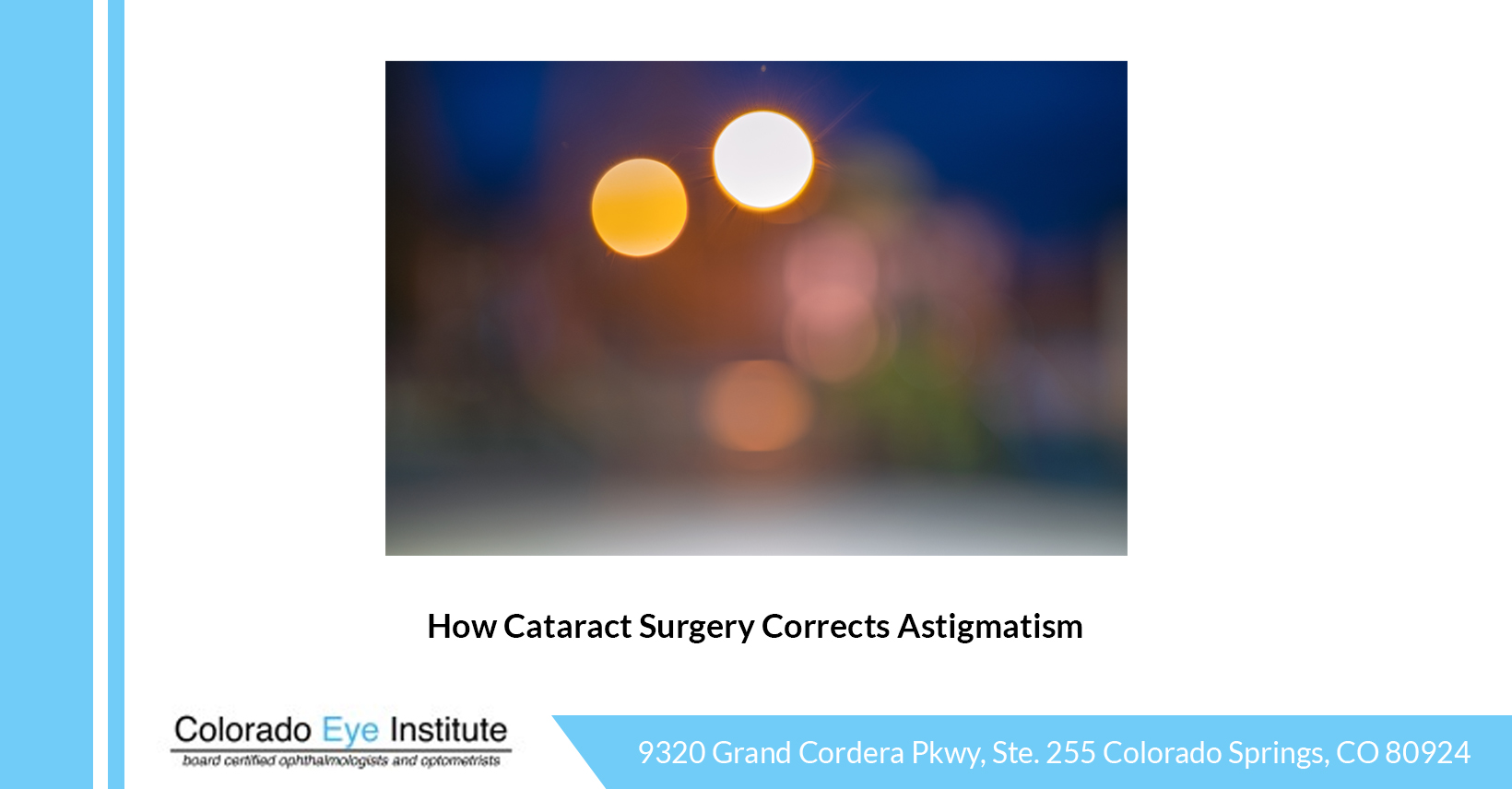Astigmatism patients seeking cataract surgery may be concerned about the interaction between the two eye disorders. Astigmatism, a disorder characterized by an unevenly shaped cornea, causes hazy vision. Cataracts damage the eye’s natural lens and reduce clarity. While cataract surgery is a well-established means of restoring clear vision, it is critical to understand how it may interact with astigmatism. Individuals who understand this interplay can make better judgments regarding their eye health and surgical alternatives.
Understanding Astigmatism
Think of your eye as a camera lens. With astigmatism, it’s like having a camera lens that’s slightly warped. Instead of being perfectly round like a basketball, your cornea is shaped more like a football. This irregular shape causes light to focus on multiple points in your eye rather than one clear spot, resulting in blurry or distorted vision. Many people who develop cataracts also have some degree of astigmatism.

Connection of Cataract Surgery and Astigmatism
Here’s the good news: modern cataract surgery at Colorado Eye Institute can actually help with both conditions. Today’s advanced surgical techniques allow our surgeons to address your cataracts while also correcting your astigmatism. During surgery, we can use specialized lenses (called toric IOLs [intraocular lenses]) specifically designed to correct astigmatism. Think of it as hitting two birds with one stone.
Does Cataract Surgery Worsen Astigmatism?
Let’s address the big question: No, cataract surgery typically doesn’t worsen astigmatism. In fact, with proper planning and the right surgical approach, we can often reduce or eliminate your existing astigmatism during the same procedure.
- Reducing or Eliminating Astigmatism: – Advanced surgical techniques and specialized lenses can correct astigmatism.
- Improving Overall Vision Quality: – Cataract surgery can significantly enhance your vision, especially in low-light conditions.
- Decreasing Reliance on Glasses: – Many patients experience a reduction in their need for glasses after surgery.
How Cataract Surgery Corrects Astigmatism
- Toric IOLs: – These specialized IOLs are designed to correct astigmatism by precisely focusing light rays onto the retina. By implanting a toric IOL during cataract surgery, surgeons can significantly reduce or eliminate the need for glasses or contact lenses.
- Corneal Incisions: – During cataract surgery, precise incisions are made in the cornea to reshape its surface. This technique, known as LRIs (limbal relaxing incisions), can help correct mild to moderate astigmatism.
- Advanced Laser Technology: – State-of-the-art laser technology, such as femtosecond laser, enables surgeons to create precise incisions and customize the shape of the cornea to further refine vision and reduce astigmatism.
As one of Colorado Springs’ top eye care providers, Colorado Eye Institute is the community’s go-to source for vision care because of our dedication to quality.
We provide thorough post-operative care, which consists of:
- Frequent Follow-Up Consultations: – To keep an eye on your vision and eye health.
- Vision Evaluation and Tracking: – To keep tabs on your visual development.
- Updates to Prescriptions: – To provide the best possible eyesight with glasses or contact lenses.
- Handling: – Any lingering astigmatic problems is known as residual astigmatism management.
- Lifestyle Advice: – To improve your eye health and eyesight.
Don’t let astigmatism hinder your cataract treatment. Contact our expert team at Colorado Eye Institute who is dedicated to helping you achieve the clear vision you deserve. Schedule your cataract consultation today at Colorado Eye Institute. Call (719) 258-1240 or visit our website to learn more about our advanced cataract surgery options in Colorado Springs.

